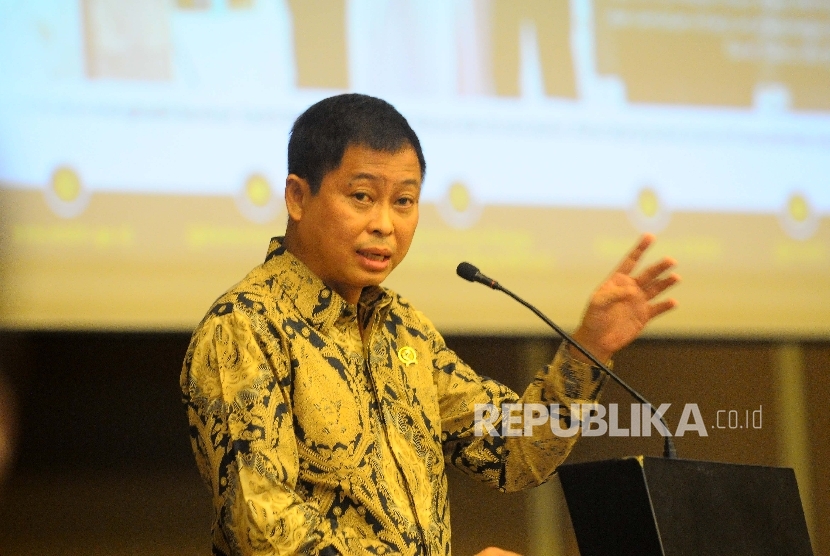REPUBLIKA.CO.ID, JAKARTA -- Minister of Energy and Mineral Resources Ignasius Jonan expects that oil and gas industry would boost Indonesia's economic growth.
"Oil and gas industry should not only be a source of foreign exchange, but it should be the driver of Indonesia's economic growth," Jonan said, while attending the Indonesian Petroleum Association (IPA) convention here, Wednesday.
Currently, the decreasing oil and gas production increases operational costs, including in exploring oil and gas sources, he explained. However, Jonan still wanted Indonesian oil and gas industry to produce maximally.
One of the keys to achieving that, according to him, is operational efficiency, as no industry or experts can predict the world oil price precisely every year.
Jonan hoped the Contractors of Cooperation Contract would be more active in efficiency exploration, especially Pertamina, the oil and gas company owned by Indonesia.
In addition, a fast-administrative process will help save various costs. The average time required for the first oil production is a dozen years.
"The Masela Block alone needed 10 years, so I hope the special oil and gas working unit and other parties can do it in shorter time for investors," he remarked.
Meanwhile, the revision of Government Regulation no. 79/2010, on the operational costs that can be returned and the treatment of income tax on the upstream oil and gas business, is still stuck in the Ministry of Finance.
Earlier, in September 2016, Finance Minister Sri Mulyani said the revision was expected to increase the economic value by raising the internal rate of return that would make upstream oil and gas industries more attractive to investors.
"Based on the calculation, the economic value of project will increase through the internal rate of return, which increased from 11.59 percent to 15.16 percent with the support of tax and non-taxation facilities, especially in the exploration period," she noted.
The amendments to the revision of the Government Regulation No. 79/2010 include tax exemption facilities during the exploration period, namely import value added tax (VAT) and import duty, domestic VAT and building tax, which would be borne by the government.


